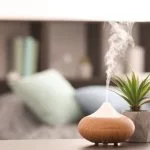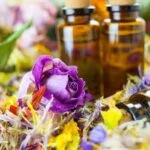The use of aromatherapy to reduce stress has gained significant popularity in recent years. People are turning to this holistic approach to promote relaxation and calmness amidst the fast-paced and hectic nature of modern life. Aromatherapy harnesses the power of essential oils derived from plants to soothe the mind, body, and spirit. By understanding how aromatherapy works and its effectiveness in reducing stress, individuals can unlock a natural solution for achieving inner tranquility.
Stress is a prevalent issue that impacts millions of people worldwide. From long work hours and demanding responsibilities to personal challenges and societal pressures, stress manifests in various forms and can take a toll on both physical and mental health. Recognizing the detrimental effects of stress, individuals are actively seeking effective ways to manage their daily stressors, leading them to explore alternative therapies such as aromatherapy.
Aromatherapy involves the use of essential oils extracted from plants through methods like steam distillation or cold-press extraction. These aromatic compounds have been used for centuries for their therapeutic properties. The inhalation or topical application of these oils can stimulate specific areas of the brain associated with emotions, triggering relaxation responses and reducing stress levels. This unique interaction between essential oils and the body allows individuals to experience profound feelings of calmness, peace, and overall well-being.
As the demand for natural approaches to stress reduction continues to rise, it is essential to delve into the science behind aromatherapy. Understanding how essential oils interact with our bodies can help shed light on why aromatherapy has become an effective tool in combating stress. By exploring different techniques, applications, scientific studies, and practical tips for incorporating aromatherapy into daily life, individuals can harness its full potential as a natural remedy for promoting emotional balance and managing stress effectively.
Understanding Stress and Its Impact
Stress is a common experience that affects individuals on various levels, both physically and mentally. It is essential to understand the definition of stress, its causes, and the detrimental effects it can have on our overall health and well-being. This section aims to provide a comprehensive understanding of stress and its impact.
In simple terms, stress can be defined as the body’s response to a demanding or challenging situation. It is a natural response that triggers the release of hormones such as cortisol and adrenaline, preparing the body for a “fight-or-flight” response. While occasional stress can be beneficial in certain situations, chronic or prolonged stress can have severe consequences on our physical health, mental well-being, and quality of life.
The causes of stress can vary greatly from person to person. Common sources of stress include work-related pressures, financial difficulties, relationship problems, major life changes, and traumatic experiences. Additionally, factors such as genetics, past experiences, personality traits, and coping mechanisms also play a role in how individuals respond to stressful situations.
The impact of chronic stress on physical health is significant. It can lead to various ailments such as headaches, muscle tension and pain, digestive issues, weakened immune system function, increased risk of cardiovascular diseases like hypertension and heart disease. Mentally, chronic stress can manifest as anxiety disorders like generalized anxiety disorder (GAD), panic disorder (PD), post-traumatic stress disorder (PTSD), depression, sleep disturbances,and cognitive impairments.
Overall, understanding stress and its impact is crucial in recognizing its signs and symptoms earlier on to prevent further complications. By addressing the underlying causes of stress through effective coping mechanisms like aromatherapy we can mitigate its negative effects. Through exploration and application of alternative therapies such as aromatherapy we gain tools to promote relaxation and improve our overall well-being in the face of everyday challenges.
Defining Aromatherapy
Aromatherapy, a holistic healing practice that has been used for centuries, involves the use of essential oils derived from plants to promote well-being and enhance overall health. This section will provide a comprehensive explanation of aromatherapy, including its history and the various therapeutic purposes for which it is used.
The practice of using aromatic plants for their healing properties can be traced back to ancient civilizations such as Egypt, China, and India. In these cultures, plants and their essential oils were used medicinally, spiritually, and in daily life rituals. The term “aromatherapy” was coined by René-Maurice Gattefossé in the 1930s when he discovered the healing properties of lavender oil after accidentally burning himself and experiencing remarkable healing effects.
Aromatherapy relies on the extraction of essential oils from various parts of plants such as flowers, leaves, bark, stems, or roots. These essential oils contain potent compounds with therapeutic properties that can positively impact physical, emotional, and mental well-being. The oils are often extracted through methods such as steam distillation or cold pressing to ensure their purity and potency.
| Aromatherapy Benefits | Explanation |
|---|---|
| Promotes relaxation | Aromatherapy helps calm the mind and body by activating certain receptors in the brain that trigger relaxation responses. |
| Elevates mood | Certain essential oils have uplifting properties that can help alleviate symptoms of depression and anxiety. |
| Reduces stress levels | The inhalation or topical application of specific essential oils has shown to lower cortisol levels (stress hormone) in the body. |
| Improves sleep quality | By promoting relaxation and relieving anxiety, aromatherapy can enhance sleep quality and help with insomnia. |
The Science Behind Aromatherapy
Aromatherapy has gained popularity as a natural and holistic approach to reducing stress, promoting relaxation, and enhancing overall well-being. But what is the science behind this ancient practice? How do essential oils interact with our brain and body to induce relaxation and stress reduction?
Essential oils used in aromatherapy contain bioactive compounds that have been found to have various therapeutic effects on the body and mind. When these aromatic compounds are inhaled or applied topically, they can stimulate the olfactory system or be absorbed through the skin, triggering physiological responses.
One key mechanism of action is through the limbic system, which plays a role in emotions, behavior, memory, and the regulation of stress responses. The olfactory bulb in our brain is directly connected to the limbic system, where essential oil molecules are detected by specialized receptors. The molecules then interact with these receptors, sending signals that stimulate specific areas within the limbic system.
The activation of the limbic system can have profound effects on our emotions and stress levels. For example, inhaling certain essential oils like lavender or chamomile has been found to increase the production of neurotransmitters such as serotonin and dopamine, which are associated with feelings of well-being and relaxation. Additionally, studies have shown that some essential oils can reduce levels of cortisol – commonly known as the “stress hormone” – thereby helping to alleviate stress responses in the body.
In addition to their interactions with the brain’s limbic system, essential oils may also have direct effects on various physiological processes. For example, certain oils like bergamot have been found to have anxiolytic properties, meaning they can reduce anxiety levels by acting on specific neurotransmitter receptors in the brain. Similarly, other essential oils like ylang-ylang may help promote relaxation by decreasing heart rate and blood pressure.
Understanding the science behind aromatherapy provides insight into how this practice can effectively reduce stress and promote relaxation. By harnessing the power of essential oils and their interactions with the brain and body, individuals can experience the benefits of aromatherapy as a natural and holistic approach to stress management.
Stress-Relieving Essential Oils
Aromatherapy is a holistic approach to reducing stress and promoting relaxation. One of the key components of aromatherapy is the use of essential oils derived from plants, which can have powerful stress-relieving properties. This section will delve into some popular essential oils known for their stress-reducing benefits and their unique advantages.
- Lavender: Lavender is perhaps one of the most well-known essential oils for stress relief. It has been used for centuries to promote relaxation and calmness. Lavender essential oil has been found to reduce anxiety levels, improve sleep quality, and ease tension in both the mind and body. Its soothing scent makes it a popular choice for those seeking relaxation and stress reduction.
- Chamomile: Chamomile essential oil is another widely recognized oil for its ability to reduce stress. It has a gentle and calming aroma that helps to relax both the mind and body. Chamomile oil is known for its sedative properties, making it an excellent choice for those struggling with insomnia or high levels of anxiety. Additionally, chamomile oil can help ease digestive discomfort which may be exacerbated by stress.
- Bergamot: Bergamot essential oil is derived from citrus fruit and is known for its uplifting qualities. It has a refreshing and citrusy scent that can help alleviate feelings of anxiety and depression. Bergamot oil promotes relaxation while also boosting mood and energy levels. This makes it a versatile option for individuals looking to reduce stress while still maintaining an active mindset.
These are just a few examples of essential oils that are commonly used in aromatherapy to reduce stress. Each individual may respond differently to different scents, so it’s important to experiment with various oils to find what works best for you.
| Essential Oil | Unique Benefits |
|---|---|
| Lavender | Reduces anxiety levels, improves sleep quality, eases tension |
| Chamomile | Relaxes mind and body, helps with insomnia and digestive discomfort |
| Bergamot | Uplifting, reduces anxiety and depression, boosts mood and energy levels |
Other essential oils known for their stress-relieving properties include ylang-ylang, rosemary, and frankincense. It’s important to note that essential oils should be used properly and in moderation. Some individuals may have sensitivities or allergies to certain oils, so it’s always recommended to do a patch test before using them extensively.
Incorporating these stress-relieving essential oils into your aromatherapy routine can help create a calming atmosphere and promote relaxation. Whether through diffusion, massage, or inhalation techniques, the use of these oils can support a sense of peace and tranquility amid the chaos of daily life.
Aromatherapy Techniques and Applications
Aromatherapy offers various techniques and applications that can effectively reduce stress and promote relaxation. By understanding these methods and how they work, individuals can harness the power of essential oils to create a calming environment and alleviate stress-related symptoms.
1. Diffusing Oils:
Diffusing essential oils is one of the most popular techniques in aromatherapy. It involves dispersing essential oil molecules into the air through a diffuser or nebulizer. The aroma released by the diffuser creates an inviting atmosphere that can help soothe the mind and body.
Inhalation of these aromatic molecules stimulates the olfactory system, which sends signals to the brain’s limbic system-the area responsible for emotions, memory, and mood regulation. This interaction promotes relaxation by slowing down heart rate, reducing blood pressure, and decreasing cortisol levels.
2. Massages:
Aromatherapeutic massages combine the benefits of essential oils with soothing touch therapy to enhance stress reduction. During a massage session, diluted essential oils are applied to the skin through gentle strokes or acupressure techniques. When absorbed by the skin, active compounds in the oils enter the bloodstream and further support relaxation. The physical manipulation of muscles during a massage also helps release tension and promote overall well-being.
3. Inhalation:
Direct inhalation is another effective method for utilizing aromatherapy for stress reduction. Inhaling essential oils via steam inhalation or personal inhalers allows for quick absorption into the respiratory system, where they can directly affect both physiological and psychological processes. Inhaled essential oil molecules interact with receptors in the nasal cavity, activating areas of the brain that control emotions and provide a sense of calmness and tranquility.
4. Topical Application:
Some individuals prefer topical application as their chosen method of aromatherapy. Diluted essential oils can be applied to specific areas of the body or used for full-body massages. When the oils are absorbed into the skin, they enter the bloodstream and have a systemic effect on both physical and emotional well-being.
By understanding these different techniques and applications of aromatherapy, individuals can select the approach that resonates most with them and tailor their stress-reduction practices accordingly. Experimenting with various methods enables one to find what works best for their unique needs, allowing them to incorporate aromatherapeutic practices seamlessly into their daily routines.
Research and Studies
Research and Studies: Examining the Efficacy of Aromatherapy in Reducing Stress
The effectiveness of aromatherapy in reducing stress has been supported by numerous scientific studies and clinical trials. Over the years, researchers have investigated the impact of essential oils on stress levels and have found compelling evidence to support their use as a holistic approach to stress reduction.
Evidence-backed benefits for individuals
Several studies have demonstrated the positive effects of aromatherapy on individuals experiencing stress. For example, a study published in the Journal of Alternative and Complementary Medicine found that inhalation of lavender essential oil significantly reduced cortisol levels, a hormone associated with stress, in healthy participants. Another study conducted among intensive care unit patients showed that receiving hand massages with essential oils resulted in lower levels of anxiety compared to those who received regular massages without any aromatic oils.
Moreover, research indicates that specific populations can also benefit from aromatherapy. A review published in the Journal of Perianesthesia Nursing suggests that cancer patients undergoing chemotherapy experienced reduced anxiety and improved overall well-being when exposed to aromatherapy interventions. Similarly, a study involving pregnant women found that daily inhalation of orange essential oil led to decreased anxiety levels compared to a control group.
Benefits for specific scenarios
Aside from individual benefits, research has also identified evidence-backed advantages for specific scenarios where stress reduction is crucial. A randomized controlled trial published in Evidence-Based Complementary and Alternative Medicine investigated the effects of aromatherapy on stress levels among nurses working night shifts. The results revealed that inhaling lavender essential oil significantly reduced perceived stress and improved sleep quality.
Furthermore, evidence suggests that aromatherapy can be beneficial during stressful procedures or situations. For instance, a study conducted on dental patients highlighted that inhaling neroli essential oil during dental surgery resulted in lower anxiety levels compared to a control group without aroma exposure.
Overall, these studies support the use of aromatherapy as an effective intervention for stress reduction in various individuals and scenarios. However, it is important to acknowledge that more research is needed to fully understand the mechanisms behind these positive effects and to determine the most appropriate applications of aromatherapy for different populations and stress-related conditions.
Practical Tips for Incorporating Aromatherapy into Daily Life
Incorporating aromatherapy into daily life can provide a natural and effective way to reduce stress and promote relaxation. Here are some practical tips and strategies to help you make the most out of aromatherapy in your everyday routines:
- Create Personalized Blends: Experiment with different essential oils to create personalized blends that cater to your specific needs and preferences. Some popular stress-relieving oils include lavender, chamomile, bergamot, and ylang-ylang. Consider creating a blend that combines these oils or adding other oils that resonate with you to enhance the calming effects.
- Utilize Specific Oils for Different Situations: Certain essential oils have unique properties that make them beneficial for specific situations or symptoms. For example, if you’re feeling anxious or overwhelmed, reach for lavender or frankincense oil. If you’re experiencing tension or headaches, peppermint or eucalyptus oil may provide relief. Research different oils and their benefits to find the ones that align with your needs.
- Integrate Aromatherapy into Self-Care Practices: Take advantage of self-care activities by incorporating aromatherapy into them. For instance, add a few drops of your favorite essential oil to your bathwater or use an oil diffuser during meditation or yoga practices. You can also massage diluted essential oils onto your skin during a calming self-massage session.
Remember to always follow proper dilution guidelines and usage recommendations when using essential oils topically, as they are highly concentrated substances.
By implementing these practical tips into your daily routine, you can effectively incorporate aromatherapy as a tool for stress reduction and relaxation in your life. Whether it’s creating personalized blends, utilizing specific oils for different situations, or integrating aromatherapy into self-care practices, this natural approach can significantly contribute to your overall well-being.
Precautions and Potential Side Effects
While aromatherapy is generally considered safe and beneficial for stress reduction, it is important to take certain precautions to ensure a positive experience. One potential risk of using essential oils is the possibility of an allergic reaction.
Some individuals may have allergies to specific plants or compounds found in essential oils, which can lead to skin irritations, respiratory problems, or other adverse effects. It is crucial to perform a patch test before using any new essential oil by applying a small amount diluted in carrier oil to a small area of skin and observing for any negative reactions.
Another consideration when using aromatherapy is the potential for skin sensitivity. Essential oils are highly concentrated substances that can cause skin irritation if applied undiluted or in excessive amounts. To prevent irritation, it is recommended to always dilute essential oils with a carrier oil or other suitable mediums before applying them topically. Additionally, it is advisable to avoid applying essential oils directly on broken or damaged skin as this can increase the risk of sensitization.
Proper dilution and usage guidelines are crucial for ensuring safety in aromatherapy. Each essential oil has its own recommended dosage based on factors such as age, health condition, and method of application. It is important to follow these guidelines carefully and avoid exceeding the recommended concentration or duration of use.
Moreover, certain essential oils may not be suitable for individuals with specific medical conditions such as pregnancy or certain respiratory disorders. Seeking guidance from a qualified aromatherapist or healthcare professional can help determine safe choices and dosages tailored to individual needs.
Conclusion
In conclusion, aromatherapy offers a powerful and natural solution for reducing stress and promoting overall well-being. Throughout this article, we have explored the causes and detrimental effects of stress on both our physical and mental health. We have also delved into the science behind aromatherapy, understanding how essential oils interact with our brain and body to induce relaxation and reduce stress.
Aromatherapy is a versatile practice that offers various techniques and applications to suit individual preferences. Whether it’s diffusing essential oils in your home, enjoying a soothing massage with aromatic blends, or inhaling the calming scents directly, there are many ways to incorporate aromatherapy into your daily life. Additionally, scientific studies and clinical trials consistently provide evidence of its efficacy in reducing stress levels.
To fully experience the benefits of aromatherapy, it is important to familiarize oneself with different essential oils known for their stress-reducing properties. Lavender, chamomile, and bergamot are just a few examples of these oils, each offering unique benefits to enhance relaxation. By creating personalized blends tailored to specific situations or integrating aromatherapy into self-care practices, individuals can effectively manage their stress levels.
It is crucial to note that precautions should be taken when using aromatherapy. Allergic reactions and sensitivities can occur if not properly diluted or used in excessive amounts. Therefore, it is vital to follow dilution guidelines and consult with professionals when necessary.
Overall, as you embark on your journey towards relaxation and overall well-being, do consider exploring the powerful stress-reducing benefits of aromatherapy. By incorporating this natural practice into your everyday life, you can find relief from stress while embracing a holistic approach that nurtures both your mind and body.
Frequently Asked Questions
How does aromatherapy help with mental health?
Aromatherapy has been shown to have beneficial effects on mental health due to its ability to positively influence mood, emotions, and overall well-being. Certain essential oils used in aromatherapy are known for their calming and uplifting properties, which can help reduce symptoms of anxiety and depression.
When these fragrances are inhaled, the olfactory receptors in our nose send signals to our brain’s limbic system, which is responsible for regulating emotions and memory. This communication between aroma and brain can trigger the release of neurotransmitters like serotonin and endorphins, promoting relaxation, improving mood, and enhancing mental clarity.
What are some of the effects of aromatherapy on stress responses?
The use of aromatherapy has demonstrated significant effects on stress responses by helping to regulate the body’s physiological reactions to stressors. Inhaling specific essential oils has been found to reduce cortisol levels, a hormone associated with stress, while simultaneously increasing levels of other hormones that promote relaxation and well-being.
Research suggests that lavender oil, for example, can lower heart rate and blood pressure, inducing a state of calmness and tranquility. By influencing the autonomic nervous system and shifting it towards a parasympathetic response (responsible for rest and digestion), aromatherapy helps combat the negative effects of chronic stress on both physical and mental health.
How do smells reduce stress?
Smells play a crucial role in reducing stress due to their powerful impact on our brain’s emotional centers. Our sense of smell directly connects with the amygdala and hippocampus—two areas involved in processing emotions and memories—and triggers immediate emotional responses without conscious thought. Essential oils used in aromatherapy have specific aromatic compounds that can activate receptors in these brain regions related to stress reduction.
Inhalation of pleasant fragrances stimulates the production of endorphins or “feel-good” chemicals in the brain while decreasing levels of stress hormones like cortisol. Consequently, this activation provides a distraction from stressful thoughts or situations while creating an environment conducive to relaxation and stress relief.

Are you looking for a natural way to improve your health and wellbeing?
If so, aromatherapy may be the answer for you.





